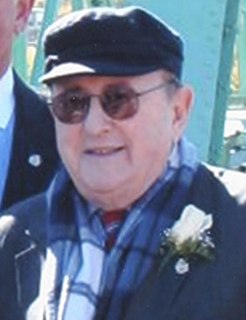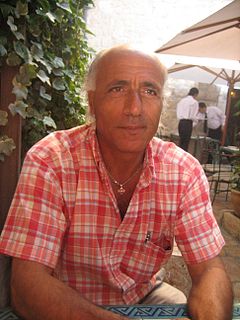A Quote by Bernard Lown
Martin Buber suggested that evil prevailed because of the inability of man to imagine the real. Yet human beings do have that capacity. Lord Byron, a poet favored by Alfred Nobel, captured the stark essence of a post-nuclear world in his poem Darkness.
Related Quotes
...then he looked at my T-shirt and saw Byron's picture on it and he quoted "She Walks in Beauty," which is like my favorite poem next to the one by Baudelaire about his girlfriend being nothing but worm food, except that Lily called that one first because Baudelaire is her fave poet and so she got the shirt with him on it, even though Byron is way more scrumptious and I would do him on sharp gravel if I had the chance. --from The Chronicles of Abby Normal
God loves human beings. God loves the world. Not an ideal human, but human beings as they are; not an ideal world, but the real world. What we find repulsive in their opposition to God, what we shrink back from with pain and hostility, namely, real human beings, the real world, this is for God the ground of unfathomable love.
Donald Trump can't even handle the rough and tumble of a presidential campaign. He loses his cool at the slightest provocation. When he has gotten a tough question from a reporter, when he is challenged in a debate. When he sees a protester at a rally. Imagine, if you dare imagine, imagine him in the Oval Office facing a real crisis. A man you can bait with a tweet is not a man we can trust with nuclear weapons. And in the end, it comes down to what Donald Trump doesn't get, America is great because America is good.
The poet must not only write the poem but must scrutinize the world intensely, or anyway that part of the world he or she has taken for subject. If the poem is thin, it is likely so not because the poet does not know enough words, but because he or she has not stood long enough among the flowers--has not seen them in any fresh, exciting, and valid way.
Five million Jews are regarding me as a traitor, but six billion people around the world think me as a hero and a good man who bring the message to all the human beings that we should survive and prevent the use of nuclear weapons and to prevent the nuclear preparations and to prevent nuclear war in the future.
I wrote a number of poems about Kah Tai lagoon, when Safeway was building that huge, ugly store down there where I used to love to watch the birds nest. That political poem, or environmental poem, was unsuccessful because Safeway built there anyway. And yet the poem has something to say today, as it did then. And I speak here only of my own poems. The agenda for every poet has to be different because most of us write from direct human experience in the world.






























